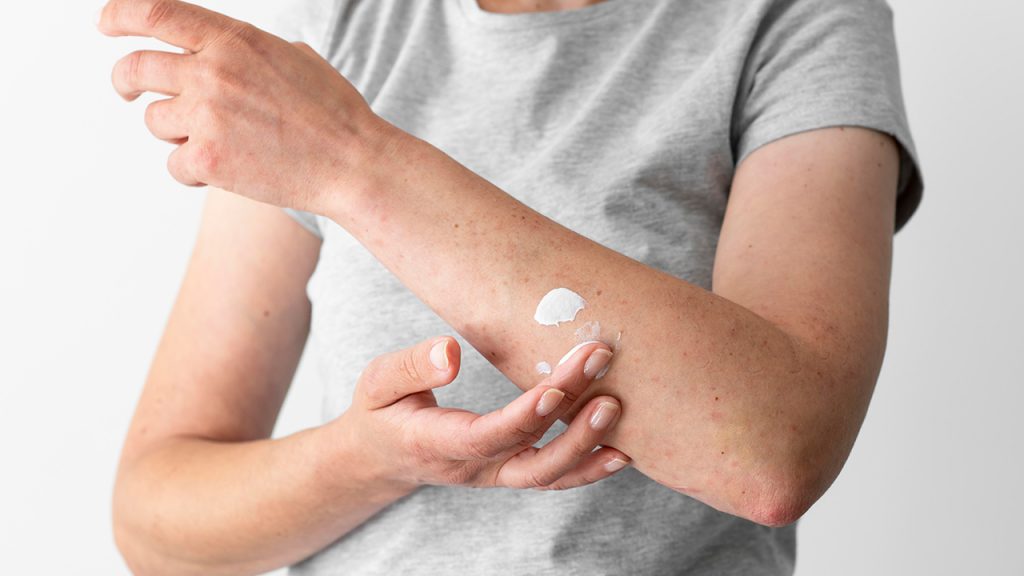
Atopic Dermatitis (AD) conjures up images of dry, itchy, and rough patches plaguing the skin. The instinctive response to ease the situation is often moisturization, and rightfully so, as maintaining hydration is fundamental in managing AD.
However, tackling AD’s persistent dryness typically requires more than a standard over-the-counter moisturizer. Dermatologists often recommend a medicated, rich, and occlusive moisturizer loaded with skin-barrier fortifying ingredients. For those living with AD, a one-time daily application simply won’t suffice; diligent and repeated moisturization throughout the day is essential for preventing dryness and improving moisture retention.
But is there more to skin hydration than just moisturizers? Indeed, a few straightforward lifestyle adjustments can make a significant difference. Shorter, lukewarm baths, the use of gentle, fragrance-free cleansers, and immediate post-shower skin moisturization while the skin is still damp can have long-term benefits for the skin’s natural barrier, keeping it supple and preventing dryness.
As for activities like swimming, which involve extended water exposure, it’s advisable to apply an occlusive substance, such as petroleum jelly, on dry patches to shield the skin from chlorine’s harsh effects. Nevertheless, consulting a dermatologist is crucial before undertaking such activities, as they can best assess one’s specific skin needs.
A common query arises about the role of internal hydration – does drinking ample water naturally moisturize the skin? Contrary to popular belief, internal hydration doesn’t directly translate to skin moisturization. However, staying well-hydrated is indispensable for overall bodily functions like digestion and excretion, which in turn support skin health by helping to eliminate toxins.
Investing in simple lifestyle changes pays dividends for skin health, offering an invaluable benefit for managing Atopic Dermatitis without a hefty price tag. For further information or guidance, reach out to your GOQii Skin Coach.
#BeTheForce
References – https://www.nhs.uk/conditions/atopic-eczema/
Rajagopalan M, De A, Godse K, Krupa Shankar DS, Zawar V, Sharma N, Mukherjee S, Sarda A, Dhar S. Guidelines on Management of Atopic Dermatitis in India: An Evidence-Based Review and an Expert Consensus. Indian J Dermatol. 2019 May-Jun;64(3):166-181. doi: 10.4103/ijd.IJD_683_18. PMID: 31148854; PMCID: PMC6537677.
https://www.ncbi.nlm.nih.gov/pmc/articles/PMC9954916/




Leave a Reply